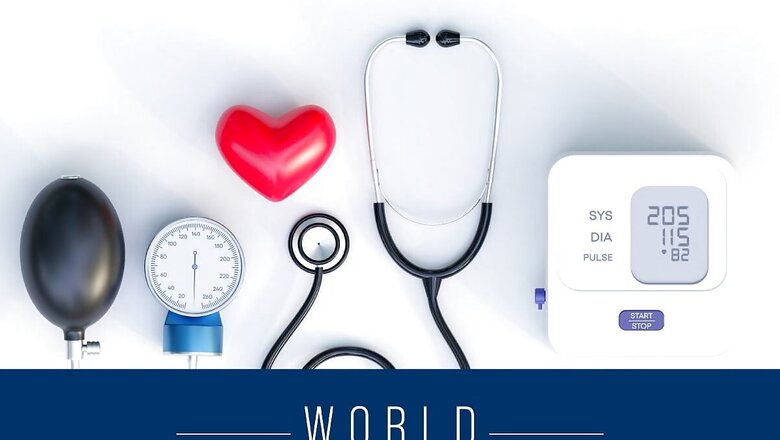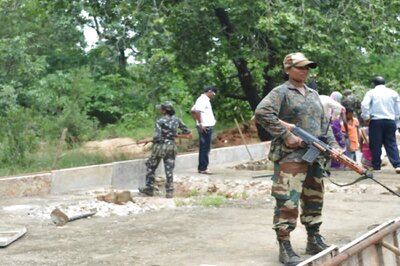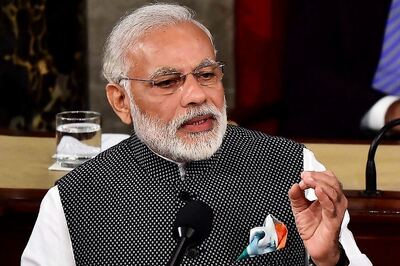
views
As highlighted by the National Family Health Survey (NFHS-5), one in five Indian women and one in four Indian men suffer from hypertension. The survey also revealed that approximately 33 percent of women and 46 percent of men had never got their blood pressure measured. Another challenge is that even when people are informed by doctors or health professionals about their condition, very few actually take medicines for controlling their blood pressure.
It is well understood that uncontrolled blood pressure is a key risk factor for cardiovascular diseases including heart attack and stroke, which are globally the biggest causes of illness and death. In India too, nearly one-third of total deaths can be attributed to cardiovascular diseases. This makes interventions which promote early detection and timely management of high blood pressure a best buy for public health. Such interventions not only reduce patient suffering but also help curb out-of-pocket expenditure which would otherwise be incurred if hypertension goes unchecked and results in further health complications.
Recognising the importance of this challenge, India has set a target of achieving a 25 percent relative reduction in the prevalence of hypertension by 2025. To achieve this target, India has launched a multi-partner initiative which was awarded last year by the United Nations for identifying and treating over 3.4 million people with hypertension. The India Hypertension Control Initiative (IHCI) combines the efforts of India’s Central Health Ministry, the Indian Council of Medical Research (ICMR), the World Health Organisation (WHO) India and various state governments. IHCI was launched in 2017 and expanded in a phased manner to over 130 districts across 23 states. It complements the National Programme for Prevention and Control of Non-Communicable Diseases.
Key elements of this initiative include putting in place a standard treatment protocol, ensuring the availability of adequate quantities of medicines, screening at Ayushman Bharat Health and Wellness Centres (HWCs), involving various cadres of health professionals beyond doctors as well as tracking every patient through a real-time data system.
HWCs represent a complete transformation of the primary health paradigm in India. Hitherto, the primary health system was focused on reproductive, maternal and child health issues. With the establishment of 150,000 HWCs across India, the focus has shifted to delivering a comprehensive package of primary health services, including screening for non-communicable disease risk factors like hypertension. As a result of proactive screening which happens close to where people live, timely referral to a specialist or initiation of an appropriate treatment regimen can take place. Till December 2022, more than 86.90 crore beneficiaries had been cumulatively screened for non-communicable diseases at HWCs which includes 29.95 crore for hypertension.
Further, the primary healthcare teams can track patients to ensure adherence to treatment and monitor outcomes. HWCs are also playing an important role in creating awareness about the criticality of a healthy diet and lifestyle as risk factor mitigation for non-communicable diseases. In fact, HWCs conduct various types of wellness sessions including yoga and walkathons while also providing guidelines on diet, physical activity as well as tobacco and alcohol cessation, among others.
An evaluation of HWCs conducted by the Community Medicine Department of the All-India Institute of Medical Sciences (AIIMS) along with independent organiSations like GRAAM and Jhpiego showed that 99 percent of HWCs in both the Primary Health Centre and Sub-Centre categories offer screening for non-communicable diseases such as hypertension, diabetes and cancer. This assessment was carried out across 18 states in the country.
Beyond government interventions, the private sector too, has a role to play in improving the nutrition profile of packaged food, reducing salt content in processed food, replacing trans-fat with polyunsaturated fat as well as labelling responsibly and creating consumer awareness. Civil society and citizen groups can play their part by supplementing the government’s efforts in creating awareness about the risks associated with hypertension and encouraging people to get screened at periodic intervals. Students and youth have an especially vital role to play as positive behaviour change during those years can serve an individual well for a lifetime.
Urvashi Prasad is Director, NITI Aayog; Radha R. Ashrit is Deputy Director General, DMEO, NITI Aayog. Views expressed are personal.


















Comments
0 comment